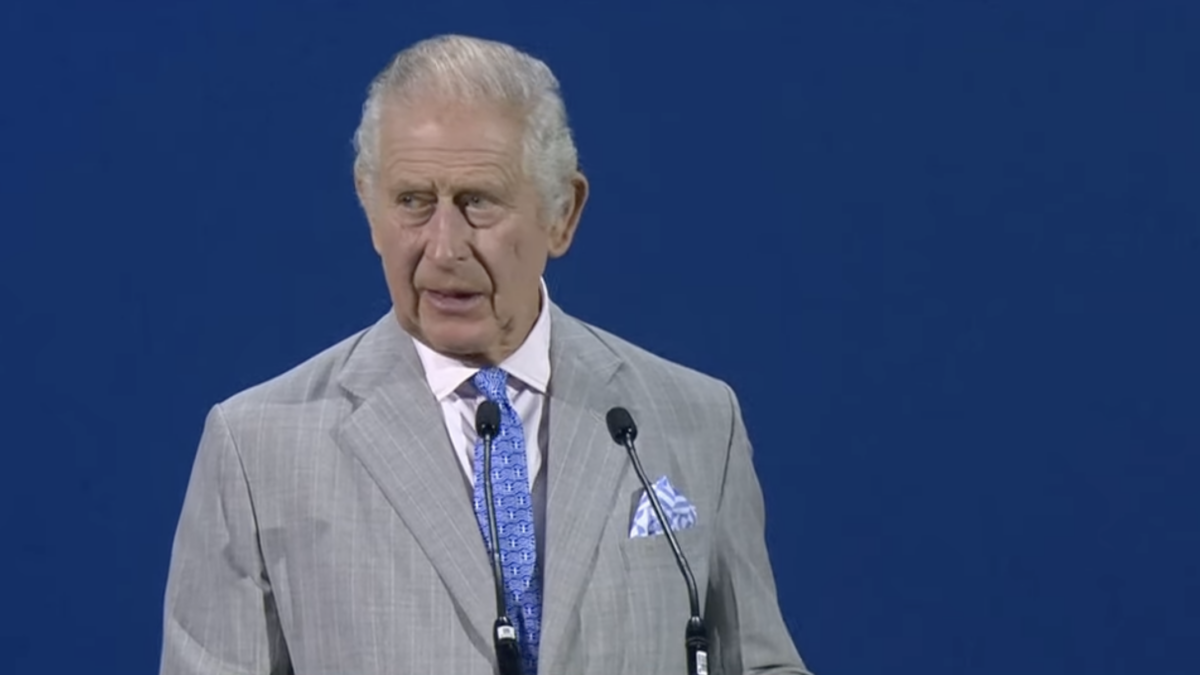
Is it morally permissible to allow “climate deniers” to appear in print and televised media?
Columbia University journalism students wrestled with this question recently at a screening of the new documentary, “Merchants of Doubt.” “Merchants,” based on the 2010 book by science historians Naomi Oreskes and Erik Conway, endeavors to smear skeptics of anthropogenic global warming as the henchmen of the fossil-fuel industry. The film is light on evidence, as I show here, but heavy on verve. Director Robert Kenner (“Food, Inc.”) traces the stories of sly 1950s tobacco reps who hired scientists to cast doubt on a growing consensus that smoking was unhealthy. The film’s implication, insinuated rather than demonstrated, is that global warming doubters are likewise mercenary.
If you buy that argument, then it makes some sense to keep “deniers” from deluding the public. In a room full of journalism students in training to ask tough questions and root out the truth, everyone bought it.
Global Warming Opposition Equals Propaganda
“It is a lie to say that global warming poses no danger,” New York Times reporter Justin Gillis told the crowd as part of a panel after the screening. He was responding to a question from the editor of the Columbia Journalism Review, who had asked him whether news outlets present a “false balance” when they cite both proponents and skeptics of anthropogenic global warming. Since the science is “settled,” and “consensus” has been achieved, why not quote only the proponents? “Journalists care about the truth—that’s my only care in life, to find the truth,” Gillis added. “To act as if the evidence is half and half is to tell a lie. I refuse to perpetuate that lie.”
“Accurate information about climate change is a human right,” insisted Emily Southerd, campaign manager for the advocacy group Forecast the Facts. “Accurate information” in this case apparently means “consensus” information. Southerd shared that her organization is petitioning news stations to quit booking “deniers” like Marc Morano of ClimateDepot.com, one of the “merchants” shown in the film. Wendell Potter from the Huffington Post recommended that newspapers create a new “propaganda beat” with reporters devoted solely to unmasking the “deniers” as frauds.
It’s hard to take such caviling seriously when the New York Times is running beguiling hit pieces on respected (but climate-skeptic) astrophysicist Willie Soon and cheering a McCarthyite investigation into seven other professors who expressed skepticism towards the idea that global warming is dangerous and man-made. In the United Kingdom last summer, after global warming-skeptic Lord Nigel Lawson appeared on the BBC, the head of the BBC Complaints Unit announced that “minority opinions and sceptical views should not be treated on an equal footing with the scientific consensus.” Lawson has not been on the BBC since.
Skeptics are not exactly popular in the media. Gillis acknowledged a tacit pact among print journalists to stop giving credence to climate skeptics. He called this an “enlightenment” that began ten or 15 years ago. American television, he noted, still lets a few skeptics onto the air; broadcasters have yet to come out of the Dark Ages.
Denying the Deniers
The merits of the term “denier” also got some play among the panelists. Southerd cast a strong vote in favor of the term: “these people need to be labeled what they are: climate change deniers.” Gillis explained the need to maintain the appearance of impartiality. “This is much like the abortion wars: what term you use signals what side you are on.” His own preference was to describe the “deniers” as “people who oppose climate science.” He was adamant, though, that these opponents-of-climate-science should never be called “skeptics”; all scientists are professional skeptics, and it would be inappropriate to honor the climate-doubters with such a term.
One member of the audience thought to ask about the funding for pro-anthropogenic global warming scientists. What if someone investigated the money that supports global warming research, and made a “Merchants of Doubt” sequel about the consensus scientists? An excellent question, especially since in the last 15 years pro-sustainability and global warming research has enjoyed nearly $400 million in funding from the Environmental Protection Agency (EPA); $3 billion from the National Oceanic and Atmospheric Administration; $600 million from the National Institutes of Health; $1.7 billion from National Science Foundation; and even $2 million from the National Endowment for the Arts.
No worries about that, Gillis responded: “99.9 percent of climate science is funded by the government.” That means, he explained, that each grant is disclosed by number to the public, making every transaction transparent and trustworthy.
But Gillis neglected to explain that studies from two different organizations have uncovered in this federally-funded research cozenage and artifice of exactly the sort “Merchants” espies in climate change doubters. Paper trails indicate that the EPA, the National Oceanic and Atmospheric Administration, and other federal agencies solicited climate science research that supported their conclusions, cherry-picked peer reviewers known to be sympathetic to the pro-global warming cause, and overlooked conflicts of interest by assigning research papers to be reviewed by members of the same organizations that produced the research in the first place. In response to concerns such as these, the House of Representatives is considering the Secret Science Reform Act and the Science Advisory Board Reform Act to try to bring transparency to the research these federal agencies use as the basis for their environmental regulations.
But none of this was relevant, apparently, in an evening’s conversation about threats to the integrity of climate science. Perhaps such obstinate belief in the credibility of global warming research should itself be labeled a kind of doubt-denialism.









